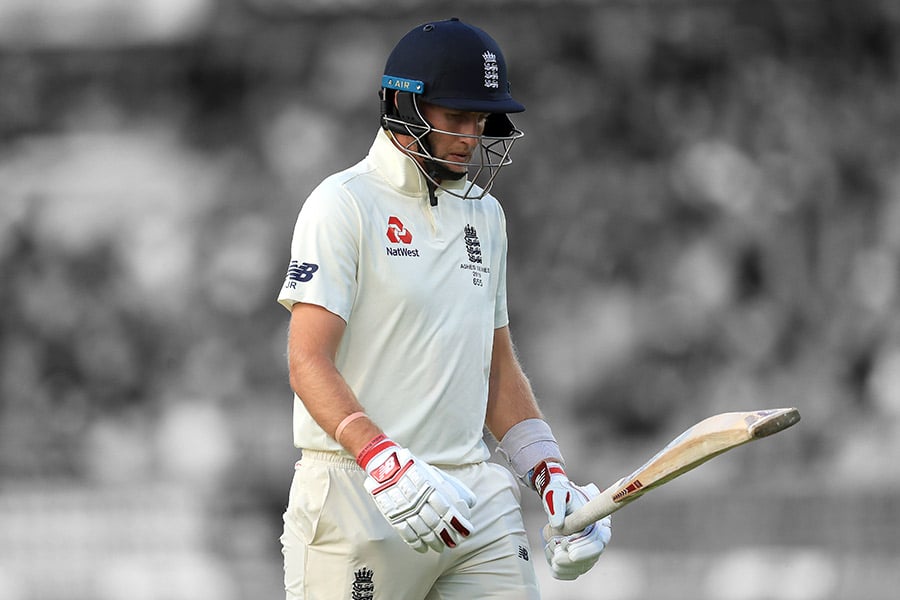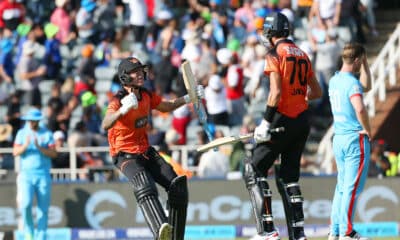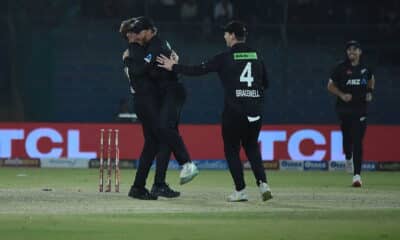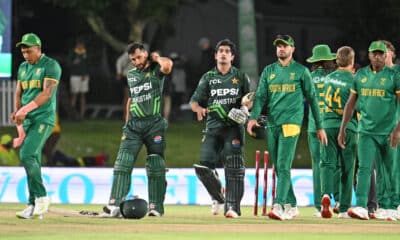
23 December 2019, by: Daniel Gallan
The Proteas can beat England: Here is how
The Three Lions on the chest of England’s cricketers is an appropriate metaphor for the schizophrenic nature of the team’s performances. The top lion roars with confidence, hurling down Jofra Archer firebombs or banging out match-saving hundreds from Ben Stokes’ bat.
The bottom lion meekly meows, trudging off the field after another disastrous batting collapse or an endless day chasing leather as a result of toothless bowling. The middle one, much like one of the side’s lukewarm openers, is just happy to be there.
It may be a cliche, but there is no telling which England will turn up. Either way, Faf du Plessis will need to find a way of taming the visiting beasts no matter which iteration turns up. Here’s how they’ll do it.
Joe Root is the glue that holds the English batting unit together. Stokes may have stolen the headlines throughout the year, but it is the side’s talismanic captain that remains the most prized wicket.
When Root scores runs, England tends to win as 13 of his 17 Test tons have come in winning causes. His career average is 48.54 but it jumps up to 62.35 when England triumph.
He has had a lean 2019 by his standards – averaging 36.85 from 11 matches with just two hundreds – but signed off the tour of New Zealand with a resounding 226, the second-highest score of his career.
Root is back at his favoured number four slot and will not want to walk out with anything less than substantial on the board.
This is why early wickets are key for South Africa. Rory Burns, Dom Sibley and Joe Denly have 26 Test caps between them. Only Burns has reached a century (twice) and his average of 32.81 is hardly imposing.
All three are proven at County Championship level but it is a gargantuan leap to Test cricket. The South African openers will look to target these three lions with a combination of aggressive short stuff and probing areas outside the channel.
If all three are back in the shed without posting at least 75 between them, England’s middle order will be under severe pressure.
South Africa’s top order probably has the edge over the English but the same cannot be said of those in the middle. Temba Bavuma has yet to find that extra step in his game and a debutant – likely Rassie van der Dussen – will be asked to bat at either five or six.
There will come a time when lower-order runs will be needed to bail South Africa out of a hole and the triumvirate of Vernon Philander, Keshav Maharaj and Kagiso Rabada at eight, nine and 10 could prove decisive.
All three have shown pedigree with the bat. Philander’s average of 24.16 belies his ability to contribute to a partnership and will feel confident against the English having scored two half-centuries against them in 2017.
Rabada’s cameo against Australia at the Wanderers in 2018 – replete with sumptuous flicks through midwicket against Pat Cummins – hinted at his potential while Keshav Maharaj is much better than his average of 15.25 suggests.
One of these three will need to find extra gears when wielding the willow and that could mean applying themselves for longer periods rather than flashing the blade. If they can prove a constant thorn in the side of Archer, Anderson and co, the Proteas will find themselves on top more often than not.
There is talk that England will not play a spinner for the Boxing Day curtain-raiser at Centurion. That South Africa would cause a shock by doing the same speaks volumes of the development of Maharaj’s finger spin.
Maharaj is unique amongst South African spinners in that he can simultaneously attack and hold up an end. It is a dream scenario for a captain looking to rotate his menacing quicks from the other end, and under the scorching African sun, du Plessis will be looking to do just that.
Maharaj might not steal the spotlight over the next two months as the more show stopping fast bowlers hog attention and English scalps, but with an in-form and disciplined Maharaj complimenting their bite, the Proteas will field a well-rounded attack.
Cricket might be the most individualised team sport, but it is still a team sport, and South Africa’s big guns will need backup.
With Lungisani Ngidi already ruled out of the first Test, the onus of taking the ball at first change will fall on one of Anrich Nortje, Dane Paterson or Beuran Hendricks. Only Nortje has played in whites for South Africa though all three are as green as the lush outfield of Newlands.
England’s batters will target whichever player is asked to do a job for his country and an expensive return could undo the good work of Rabada and Philander. If one of the newbies receives a particularly harsh beating, Maharaj’s workload increases and du Plessis may be forced to ask Elgar or Aiden Markram to fill in.
All three deputies will bring something different – Nortje bounce and aggression, Paterson skiddy swing, Hendricks the change of angle with the left arm – but no matter who is picked, much will depend on his performance.
MORE CRICKET























